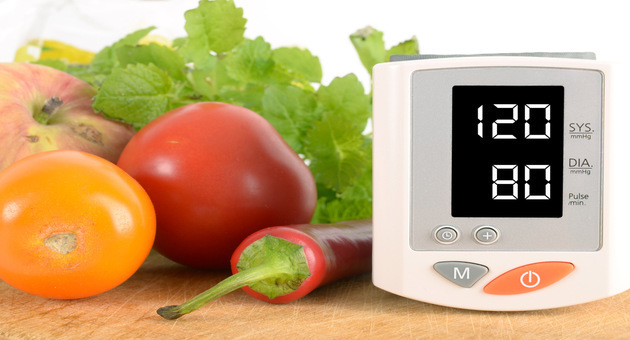What Is A DASH Diet?
DASH diet or the Dietary Approaches to Stop Hypertension diet is a novel concept that emphasizes on portion control of food, getting the adequate amount of nutrients, and to lower down the risk of hypertension.
Considering the increasing number of hypertension patients across the globe, DASH diet has been rated amongst the best diets (7th rank in US News and World Report) to lower the chances of hypertension.
How Does A DASH Diet Help?
DASH Diet encourages you to reduce the intake of sodium and increase the intake of foods that are a rich source of potassium, calcium, and magnesium such as plant-based foods, lean meats, low-fat dairy products, whole grains, fish, nuts and poultry products.
Inline with the dietary recommendations, DASH diet is a lifelong approach that has also been found to resolve a host of other health issues such as osteoporosis, heart problems, cancer, diabetes, obesity, and stroke.
What Are The Types of DASH Diet?
There are two types of DASH Diets, namely:
Standard DASH diet in which you can consume up to 2,300 milligrams (mg) of sodium a day.
Low Sodium DASH diet in which you can consume upto 1,500 milligrams (mg) of sodium a day.
How To Go About It?
-A standard American meal is said to include close to 3400 mg of sodium. DASH Diet intends to bring down the sodium levels to 2300mgs (standard diet) or 1500mgs (lower sodium diet).
-It suggested to essentially include 6 to 7 meals a day. You may choose to include fruits, veggies, whole grains and low or non-fat dairy in your daily diet.
-Include whole grains (6 to 8 servings a day) such as bread, cereal, rice (brown rice rather than white), and whole wheat pasta; vegetables (4 to 5 servings in a day) such as tomatoes, carrots, broccoli, sweet potatoes, greens and other vegetables are full of fiber, vitamins, and such minerals as potassium and magnesium; fruits (4 to 5 servings in a day) that are rich in fiber, potassium and magnesium.
-Include healthy fats in your diet (2 to 3 servings a day). Fats are very essential for the adequate absorption of the vitamins and nutrients that help to increase the immunity of the body as well.
-Include nuts, seeds and legumes (4 to 5 servings a day) such as almonds, sunflower seeds, kidney beans, peas, lentils and other foods in this family are good sources of magnesium, potassium, and protein.
-The diet best suggests to reduce the intake of foods such as lean meat, sugar enriched foods, sweets, drinks, and caffeine.
-It is recommended to reduce or eliminate added sugar of any sort. A complete elimination of sugar may lead to cravings and then a binge. Thus, it is recommended to regulate sugar intake first, and then eliminate adding sugar to your food completely.
-It is important to follow this diet under strict medical guidance because the optimum sodium levels may vary from person to person according to an individual’s body rhythm.
